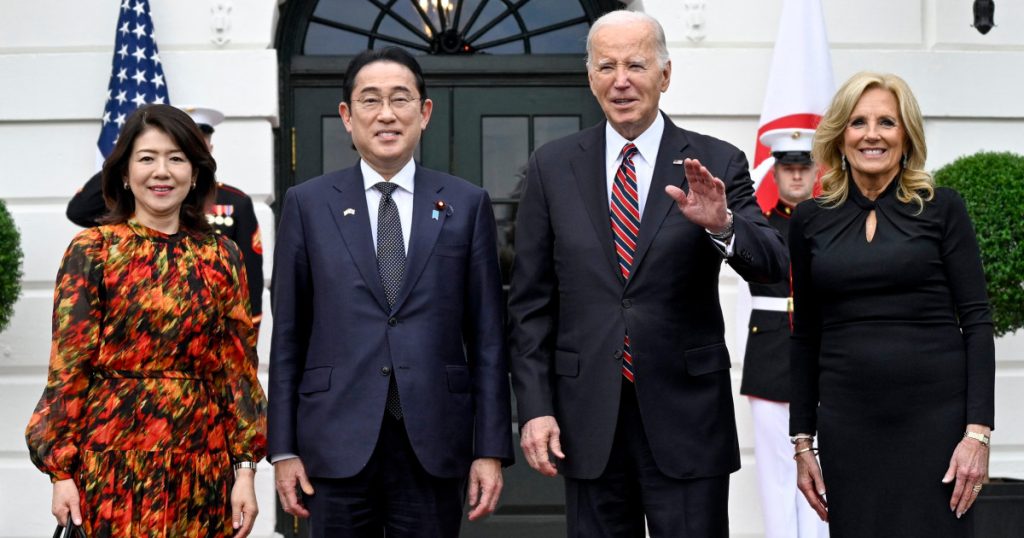The United States and Japan are set to announce an upgrade to their security alliance during Japanese Prime Minister Fumio Kishida’s official visit to Washington, highlighting Japan’s role in countering China in the Asia-Pacific region. This visit, the first by a Japanese leader in nearly a decade, comes amid differences between the two countries over the proposed acquisition of U.S. Steel by a Japanese company. During the visit, Kishida will address a joint session of Congress and participate in trilateral talks with the U.S. and the Philippines, followed by a stop in North Carolina to visit a new EV battery factory for Japanese automaker Toyota.
Japan has seen a shift in its perceptions of its security environment and has increased defense spending, marking a significant change from the pacifist constitution that has limited its military to self-defense post-World War II. Japan has also relaxed restrictions on the export of lethal weapons and has been a key player in establishing security groupings like the Quad. The changes are driven by concerns over China’s aggression and doubts about U.S. presence and reliability in the Indo-Pacific region. The U.S.-Japan summit aims to reassure Tokyo about the U.S. commitment to the security alliance and send a message that the Biden administration is not turning away from its allies in the region.
During the summit, Biden and Kishida will discuss plans to upgrade the U.S. military command structure in Japan and establish a military industrial council to explore joint defense weapons production. The two leaders are also expected to enter into agreements on lunar exploration and research partnerships in emerging technologies. Trilateral talks with the Philippines highlight tensions between China and the Philippines in the South China Sea, with the U.S. affirming its commitment to the Philippines through mutual defense treaties. The talks aim to ensure the Philippines is not isolated in defending its sovereignty against Chinese actions.
The U.S. Indo-Pacific strategy and alliances are focused on what they support rather than being against any specific country or entity, according to National Security Council Senior Director for East Asia and Oceania Mira Rapp-Hooper. The U.S. and Japan’s cooperation with the Philippines aims to show support for their sovereignty and prevent China from isolating them. Kishida is expected to emphasize the importance of continued U.S. presence in the region during his address to Congress, pushing back against the idea of reduced U.S. security commitments globally.
Kishida is likely to advocate for continued U.S. aid to Ukraine, warning that allowing Russia to succeed in Ukraine could embolden China in its aggression against Taiwan. The planned purchase of U.S. Steel by Japan’s Nippon Steel has sparked concerns among U.S. lawmakers, with Biden opposing the deal due to its impact on American jobs. However, senior administration officials believe the dispute will not significantly affect the overall U.S.-Japan relationship, emphasizing the strength and significance of their alliance beyond a single commercial deal.


